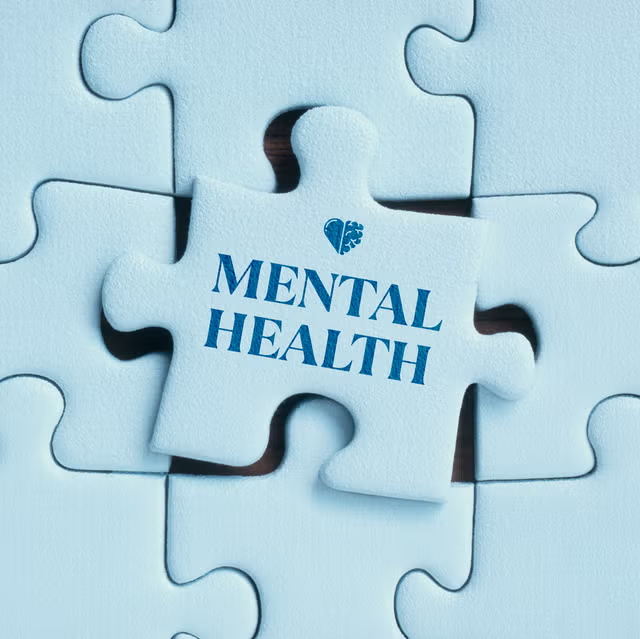Early Warning Signs of Poor Mental Health: What to Look For and How to Respond
Mental health is just as important as physical health, yet it’s often overlooked until problems become severe. Recognizing the early warning signs of poor mental health can make a big difference. It allows individuals to seek help sooner, prevent worsening symptoms, and improve their overall well-being.
In this article, we’ll explore what poor mental health looks like in its early stages, common signs to watch out for, and what steps you or someone you care about can take if you notice these signs. The goal is to help you understand mental health better and encourage a compassionate, proactive approach.
What Is Mental Health?
Mental health refers to our emotional, psychological, and social well-being. It affects how we think, feel, and behave in daily life. Good mental health helps us cope with stress, relate to others, and make healthy decisions. Poor mental health, on the other hand, can make life more challenging and reduce quality of life.
Mental health problems can range from short-term stress and anxiety to long-term conditions like depression, bipolar disorder, or schizophrenia. Early signs don’t always mean a serious illness, but they can signal the need to pay attention and seek support.
Why Is Early Detection Important?
Catching mental health issues early can prevent them from worsening and causing serious problems. Like a physical illness, the earlier you detect a mental health problem, the easier it usually is to treat. It also reduces the chance of complications such as:
- Severe emotional distress
- Trouble functioning at work, school, or home
- Relationship breakdowns
- Substance abuse
- Physical health problems caused by stress
By recognizing early warning signs, you can take control and find ways to improve mental well-being before things get overwhelming.
Common Early Warning Signs of Poor Mental Health
These signs may vary from person to person, but some common patterns include:
1. Changes in Mood and Emotions
Feeling unusually sad, anxious, or irritable for a prolonged time can be an early signal. You might notice:
- Persistent feelings of sadness or hopelessness
- Sudden mood swings
- Increased feelings of anger or frustration
2. Withdrawal and Isolation
Pulling away from friends, family, or activities you once enjoyed can indicate poor mental health. This might look like:
- Avoiding social events or conversations
- Spending excessive time alone
- Loss of interest in hobbies or passions
3. Changes in Sleep Patterns
Sleep is closely linked to mental health. Early signs include:
- Trouble falling asleep or staying asleep (insomnia)
- Sleeping too much or feeling tired even after rest
- Nightmares or restless sleep
4. Difficulty Concentrating or Making Decisions
If you find it hard to focus on tasks, remember things, or make simple choices, it could be a sign that your mental health is suffering.
5. Physical Symptoms Without Clear Cause
Sometimes mental health issues manifest physically, such as:
- Headaches or stomach aches
- Unexplained aches and pains
- Fatigue or low energy levels
6. Changes in Appetite or Weight
Sudden weight loss or gain, or changes in eating habits like overeating or not eating enough, can indicate emotional distress.
7. Increased Use of Alcohol or Drugs
Turning to alcohol or drugs as a way to cope with feelings or stress is a red flag.
How to Respond If You Notice These Signs
If you or someone you know is showing early signs of poor mental health, it’s important to act with care and compassion. Here’s what you can do:
1. Talk Openly and Without Judgment
Encourage honest conversations about feelings and struggles. Sometimes just listening can help a lot.
2. Seek Professional Help
Talking to a mental health professional such as a counselor, psychologist, or psychiatrist can provide guidance and treatment options.
3. Support Healthy Habits
Promote activities that improve mental health, like exercise, balanced diet, good sleep, and mindfulness.
4. Stay Connected
Encourage social interactions, whether through friends, family, or community groups.
5. Educate Yourself
Learn more about mental health to understand what the person may be experiencing and how best to support them
Self-Care Tips to Protect Your Mental Health
Taking care of your mental health daily can prevent problems or help manage existing issues. Here are some simple tips:
- Stay active: Physical activity releases endorphins that boost mood.
- Maintain routine: Having a daily schedule gives a sense of control.
- Practice relaxation: Meditation, deep breathing, or yoga can reduce stress.
- Limit screen time: Too much social media or news can increase anxiety.
- Reach out: Don’t hesitate to talk to friends, family, or professionals if you’re struggling.
When to Seek Immediate Help
If someone shows signs of severe distress such as:
- Talking about harming themselves or others
- Extreme withdrawal or confusion
- Sudden and severe mood changes
Seek emergency help immediately. Contact a crisis hotline, go to the nearest emergency room, or call emergency services.
FAQs About Early Warning Signs of Poor Mental Health
1. Can early signs of poor mental health go away on their own?
Sometimes mild symptoms can improve with lifestyle changes and support. But persistent or worsening signs usually need professional help.
2. How can I help a friend showing these warning signs?
Be patient and listen without judgment. Encourage them to talk to a professional and offer to help them find resources.
3. Are early warning signs the same for everyone?
No, symptoms can vary by person, age, culture, and condition. Some signs might be subtle or different depending on the individual.
4. Can poor mental health affect physical health?
Yes, mental health is closely linked to physical health. Poor mental health can lead to fatigue, weakened immune system, and chronic illnesses.
5. What if I don’t know where to find help?
Start by talking to your primary care doctor, school counselor, or local mental health organizations. Many communities have free or low-cost services available.
Conclusion
Recognizing the early warning signs of poor mental health is a crucial step towards maintaining emotional well-being. By staying aware of changes in mood, behavior, and physical health, you can act early to support yourself or loved ones. Remember, mental health challenges are common and treatable. Reaching out for help is a sign of strength, not weakness.
Taking small steps today can prevent bigger struggles tomorrow. Be kind to yourself and others, and always prioritize your mental well-being.







